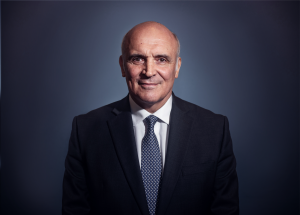The government may have managed to stop a bleeding flight of deposists by yesterday freezing "unjustified" fund transfers abroad an temprarily capon the amounts individuals can withdraw forn banks, but those measures wont’t help build trust or lower sky rocketing interest rates, experts told the Herald.
One of them, José Luis Espert, even went so far as to say that the measures were "fascist-styled" and that administration of President Fernando de la Rùa schould scrap the decade-long Convertibility which pegged the peso at par with the dollar and adopt instead a new model of a totally open economy with a "realistic" exchange rate.
Peronist Deputy Jorge Remes Lenicov, a former Buenos Aires province economy minister said: " Y understand that these measures have been taken in an emergency, buth they don’t improve credibility or help lower interest rates."
Remes Lenicov, who is also president of the Orìgenes pension fund, added:"This leads to thinking that the recessive process is going to continue."
He was referring to a battery of measures adopted yesterday by a presidential decree and announced by Economy Minister Domingo Cavallo. The measures include a cap on the cash amount individuals can withdraw from banks to $250 a week over the next 90 days, when the second phase of Argentina’s debt restructuring schould be completed.
Cavallo said that they also limit transfers of funds abroad and ban bank peso loans at "extremely high interest rates which can only be speculative" at the same time that they seek to enhance the use of cheques and debit cards to prevent tax evasion.
Also, any server having a deposit in pesos will be allowed to request its conversion into dollars cost-free. Convertibility will be maintained; the peso will not be devalued, Cavallo said. Despite the government’s reasurances, thousands of Argentines withdrew savings from banks out of fear of a devaluation or a freeze on deposits.
The government is desperately seeking to fight a well over three – year long recession and is just in the middle of a mammoth debt swap to save interest payments on the country’s $132 billion debt.
As part of its efforts, after credit markets dried in the country, the government in July adopted unpopular public wages and pension cuts to abide by the zero deficit law policy introduced in July.
Also De la Rúa is facing a deep political crisis as the ruling Alliance formed by his Radical Party and the Frepaso has fallen apart and he suffered a severe blow in October’s midterm elections, won by the opposition Peronist Party.
Remes Lenicov stated: "I agree with the exchange controls, but they schould have been introduced two months ago." said Remes Lenicov. " I also agree with seeking greater bank penetration, although it could still take one or two years more. Y disagree with the dollarization of the financial system."
Manual Solanet, a former secretary for the reform of the state for De la Rúa’s government, said the measures "will prevent the run on banks from continuing but won’t help recover confidence. I don’t see them improving country risk, either." He was referring to Argentina’s sovereign risk which last week reached a record high of over 3.500 points.
He also regretted the announcements saying that they imply ex change controls and a strong restriction on the use of currency which will have a negative effect. "In principle, they will affect retail sales negatively because there is an important sector of the population that is not used to cheques or debit or credit cards. It will take some time for them to get used to fiduciary money," he added.
However, Solanet admitted that the government didn’t have many alternatives in light of a run on banks as hasn’t been seen in many years. "If no measures were taken it wouldn’t have been possible to open banks on Monday because what happened on Friday was going to continue and would have led to a collapse."
Solanet also said that to regain confidence the government should show firm leadership with political cohesion and introduce long-delayed structural state reforms, a tax reform and also a reform of a revenue sharing agreement with provinces.
Espert, said that the stopping of the capital flights will only be shortlived. "There are two different ways of capital flight. One is taking savings abroad, and Cavallo has banned this by decree at least for 90 days. The other is that people will now start eating slices of wind to save dollars and stuffing them into their mattresses. People will not take their old savings abroad, but they wil take out the new savings. As a consequence, the implosion of the economy won’t stop," he said.
"These are fascist measures which in no way help credibility nor bring interest rates down," Espert added. "The best economic measure should have admitted that Convertibility no longer works and that there is an urgent need to change the economic model to a fully open economy, with a realistic exchange rate and zero deficit. That would bring in international backing to prevent a freeze on deposits because international agencies would have helped Argentina to capitalize the banking system which would remain absolutely de -capitalized after a devaluation", Espert said. "All the originates in Argentina’s fiscal mess over the 70 years."

